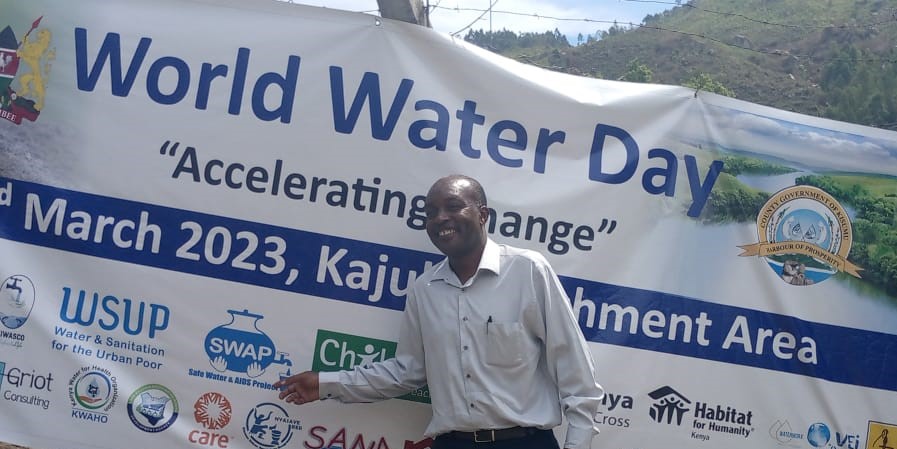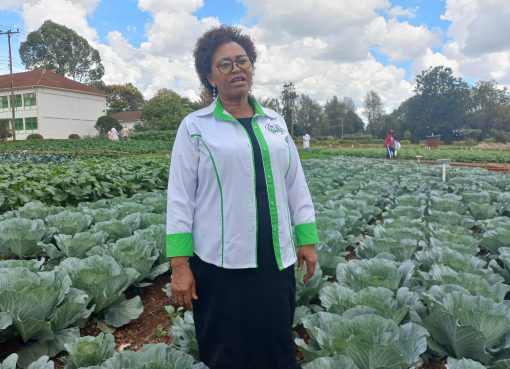The quest to provide clean, safe, and accessible water has gone a notch higher following the introduction of the use of Microplasma Technology by an environmental organization to achieve this milestone.
Alex Mwaki, the County Director of the Safe Water and Aids Project (SWAP) said the new technology is economical and ecologically sound for water treatment due to its generation at atmospheric pressure and low discharge voltage.
‘‘This new technological innovation is purely accessing safe drinking water through solar energy by the use of Microplasma Technology where we are ensuring that we do not deplete the groundwater sources, but rather we use surface water sources by using aluminum sulphate then after that the water is treated using solar energy through a process known as Ozonation,’’ Mwaki explained.
The Ozonation exercise, Mwaki said costs Sh3million and it was carried out for community projects thus producing 10 cubic metres of water each day.
Conventional water treatment technologies are using chemicals, which makes the process expensive. Ozone, which is one of the strong oxidizing agents is used to destroy pollutants that are resistant to chemical treatment.
‘‘The technology in simple terms is converting the oxygen in the water to ozone. And in the process, if there are pathogens in water, they are denied oxygen because of the introduction of ozone and they die off,’’ Mwaki added during an interview at the Kajulu Catchment Area to mark World Water Day.
In this way, Mwaki noted that they die off and eventually kill pathogens found in water. He noted the importance of safe drinking water for the population and Sustainable Development Goal number 6, which is accessing safe drinking water and sanitation.
‘‘We aim to attain SDG 6 goal by 2030 through collaborative efforts with the County Government, water service providers like Kisumu Water and Sanitation Company (KIWASCO) and partners to ensure that we attain not less than 90 percent accessibility to safe drinking water,’’ he said.
Mwaki however pointed out that these developments come with challenges because they require resources to build these infrastructures.
He suggested that we can find low-cost innovations to improve water that would be more cost-effective with less capital to ensure that people have access to safe drinking water.
‘‘SWAP also promotes other alternatives of making water safe at the point of use irrespective of the water source use, for instance, household water treatment products that we can use like Chlorine which is branded as water guard, purifiers and flocculants which purifies and disinfects your water,’’ Mwaki elaborated.
In January this year, they won a Global Water Prize from the “Community-Scale Solar Innovation Project’’ that they jointly undertook with the County Department of Water at Chuth Ber and Ahero markets.
SWAP has been contributing to safe drinking water for households, schools, and even healthcare facilities. It continues to work very closely with the County Department of Land, Water, Environment and Natural Resources, members of the WASH Network Forum together with other partners to ensure that the residents of Kisumu County have safe and clean drinking water.
For those who don’t like chemical treatment, Mwaki advices that they can use Ceramic Filters for water filtration for safe drinking water. Ultimately, the award-winning organization wants to see people irrespective of the water source they use they can have safe drinking water.
He cautioned that if people consume unsafe drinking water they can contribute to diarrheal diseases like the recent cholera outbreak and other diseases.
‘‘We also ensure that the water that people consume meets the quality standards as stipulated by the Kenya Bureau of Standards (KEBS) and the World Health Organization visions. We also offer water quality services like testing water for bacteria analysis within 24 hours for the requisite standards,’’ Mwaki said
Some of the challenges they face are the management of water sources through Community Based Organizations and reiterated the need to invest a lot in them through capacity building.
To address this anomaly, Mwaki said that they have developed an integrated management toolkit that can be used to do the capacities of small-scale water supply systems.
‘‘Management has always been a challenge and once the CBOs are empowered, you build their capacities to manage the resources,’’ he said.
Notably, SWAP uses river sources of water to improve the quality, but they also face some challenges like industrial effluents that are discharged into rivers. The effluents have chemicals that cause water pollution and it’s a big challenge to eliminate some of them with the simple technology of water treatment that is in use.
‘‘I know we are battling with the effects of climate change for instance our environment has been depleted of trees. One of the things that we are observing today is increasing forest cover by planting trees so then we can even tap more rainwater. Similarly, we’re seeing toxic situations due to global warming and getting water from drying up river sources. And this has become a challenge to access this water,’’ Mwaki emphasized.
He revealed plans for the future that they want to ensure that they reach the more underserved population that do not have access to water and need to accelerate this change by ensuring that more populations have access to clean drinking water.
‘‘We want to accelerate environmental improvement by ensuring we plant more trees to conserve our environment and catchment areas to ensure we have sources of water that can be made into safe drinking water,’’ Mwaki concluded.
By Rolex Omondi





